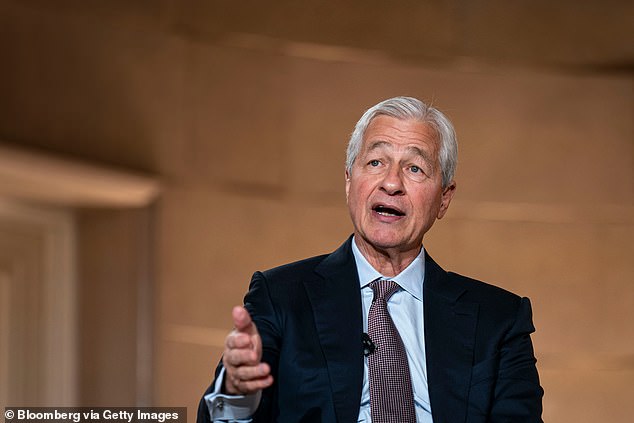JPMorgan Chase CEO Jamie Dimon has warned about ‘cockroaches’ in the US economy which could lead to financial meltdown.
The top banker said that despite the stock market flying high, there could be trouble lurking beneath the surface which could lead to a 2008-style crash.
Last month, subprime auto lender and dealer Tricolor went bust. The company, which provided loans to families with poor or no credit, is being seen as a potential canary in the coalmine.
Borrowers at the lower end of the income spectrum tend to default first, and there are growing fears that other lenders targeting the same group could also collapse – echoing what happened with subprime home loans in 2008.
Americans are racking up a huge amount of debt to keep their cars, while a record amount cannot keep up with the payments.
Not long after Tricolor, auto-parts supplier First Brands also filed for bankruptcy amid an accounting scandal that has left lenders scrambling for more than $2 billion in missing funds.
‘My antenna goes up when things like that happen,’ Dimon told analysts during a call on Tuesday.
‘And I probably shouldn’t say this, but when you see one cockroach, there are probably more… Everyone should be forewarned on this.’

JPMorgan Chase CEO Jamie Dimon has warned about ‘cockroaches’ in the US economy
Ford, America’s most iconic car company, has even started offering car loans to poorer buyers
The soaring cost of cars and insurance is pushing millions of Americans to the financial brink – and Wall Street is worried it could spark the next recession. Drivers owe $1.66 trillion in car loans – a bigger burden than federal student loan debt or credit cards, and up 20 percent since 2020.
While the recent bankruptcies may be down to issues at the specific companies, the 2008 financial crisis illustrated how these problems can begin to seep into Wall Street.
Even JPMorgan, the biggest bank in the US, suffered $170 million in losses linked to the Tricolor bankruptcy.
In 2007, two Bear Stearns hedge funds went bankrupt after massive losses related to the subprime mortgage market. Dimon then rescued the bank when it nearly collapsed in 2008, buying it for $2 a share.
What may have appeared to be nothing major turned out to be a prelude to a global financial and economic collapse that cost millions of people their jobs, their savings and their homes.
While toxic mortgages were at the heart of the 2008 financial crisis, subprime auto loans are raising warning signs today.
First Brands filed for Chapter 11 bankruptcy in September, and its accounting has been called into question. The company used the private credit market for funds to acquire competitors, CNN reported.
Creditors allege it got access to the money by promising repayments when one of its customers paid their outstanding balance.

While toxic mortgages were at the heart of the 2008 financial crisis, subprime auto loans are raising warning signs today

Subprime auto lender Tricolor went bankrupt last month, in a major warning sign for the health of the US economy

The 2008 financial crisis illustrated how smaller company problems can begin to seep into Wall Street
This so-called third-party factoring is quite common, but creditors allege that First Brands essentially used the same invoice multiple times to access funds with private lenders unaware of the ‘double dipping.’
Lenders then suspected they were overleveraged and began asking questions, the outlet reported, drawing comparisons with the downfall of investment bank Lehman Brothers.
It is the latest warning from Dimon that the economy may be standing on shakier ground than people realize.
Earlier this month, the billionaire said he feared the US economy might slide into a recession in 2026.
‘I hope for the best and plan for the worst,’ he told Bloomberg earlier this month. ‘You don’t wish it, because you know certain people get hurt.’
Right now, the US economy is not close to a technical recession. By definition, it would have to experience two straight quarters of declining economic growth and slowing job numbers.
Despite solid economic numbers, Dimon is worried about a weakening jobs market, stubborn inflation, the impact of Artificial Intelligence and the impact of trade wars.
This article was originally published by a www.dailymail.co.uk . Read the Original article here. .


